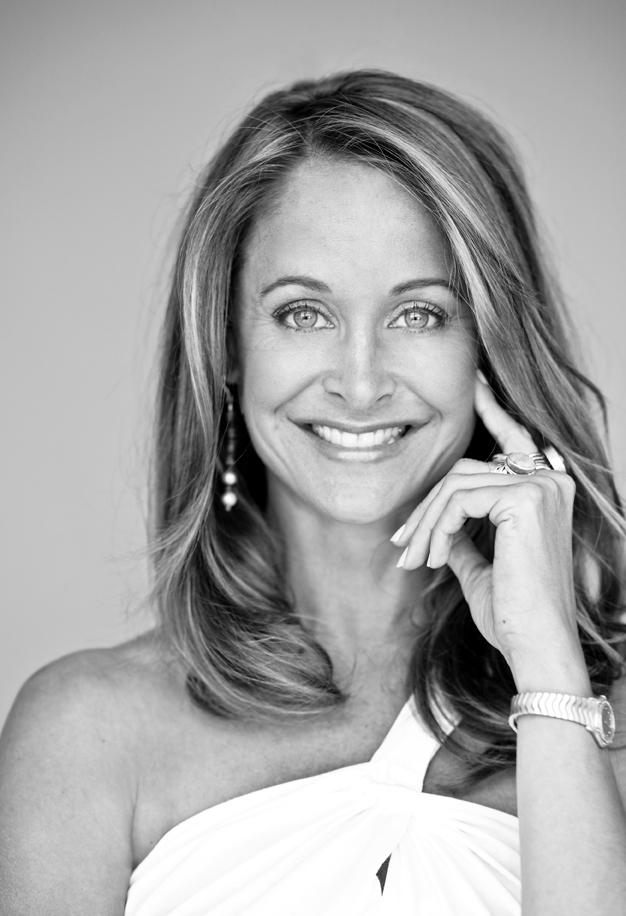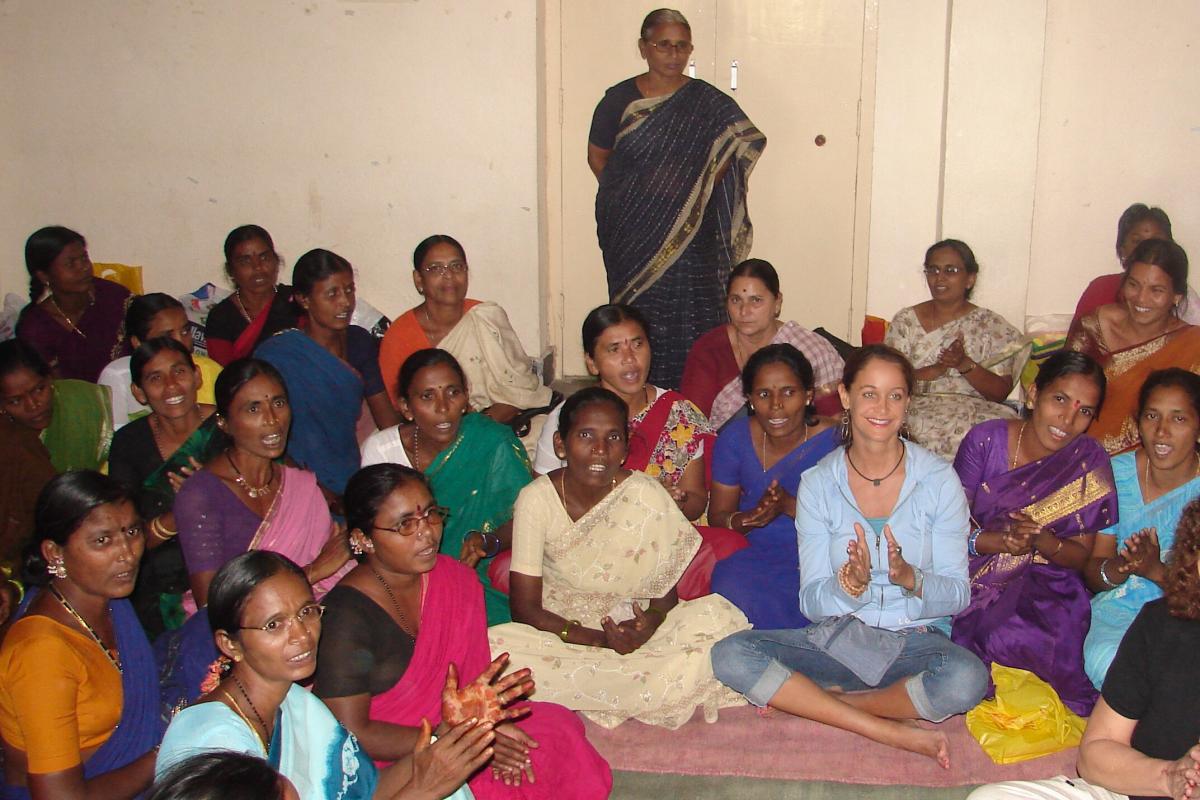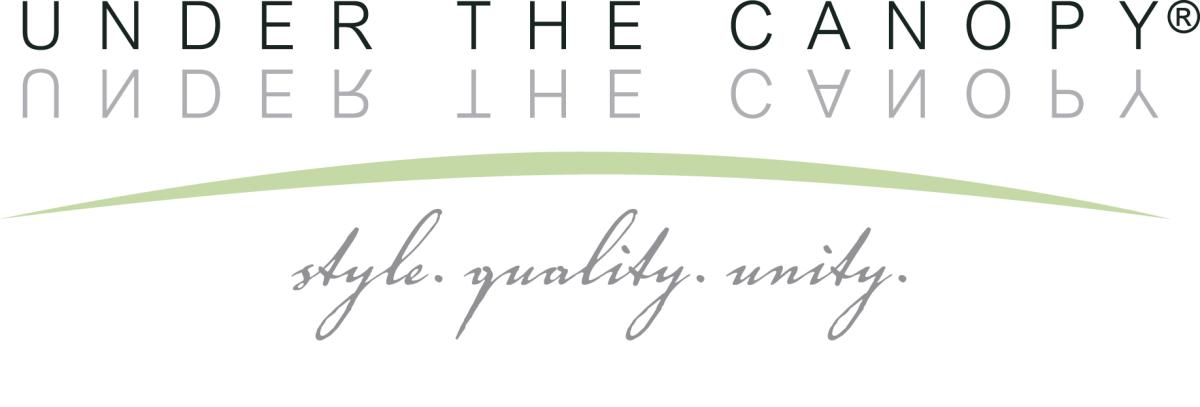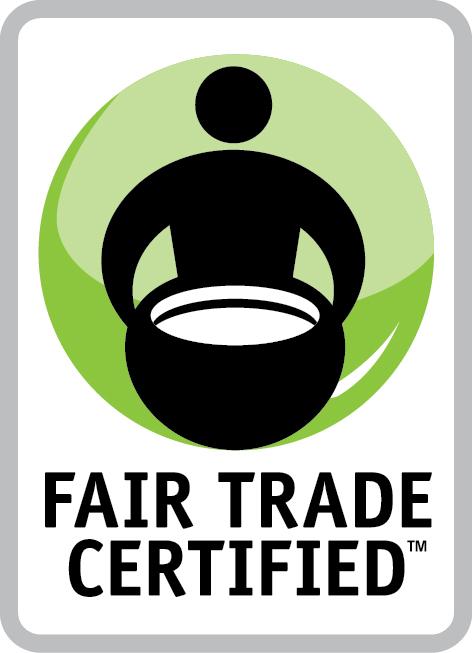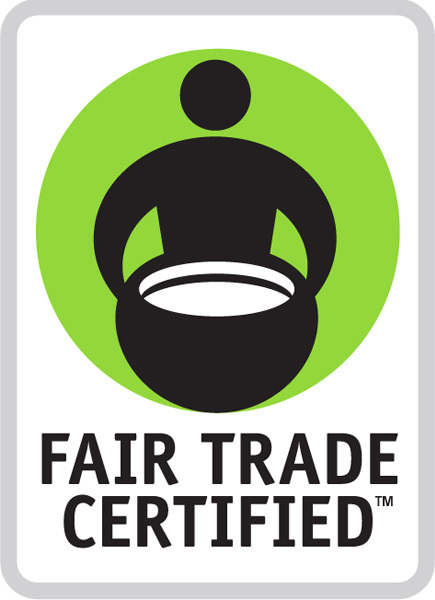Making Fair Trade Fashionable: Q&A with Marci Zaroff
ECOfashion Pioneer Marci Zaroff drives Fair Trade forward in apparel and home goods
Making Fair Trade Fashionable: Q&A with Marci Zaroff
Marci Zaroff is an internationally recognized ECOlifestyle entrepreneur, educator and expert who played a leading role in the creation of Fair Trade USA's apparel and home good program. Founder of “Under the Canopy,” Producer of “THREAD|Driving Fashion Forward,” and Co-Founder of “The Institute for Integrative Nutrition” and “I AM Enlightened Creations,” Marci has been instrumental in driving authenticity, environmental leadership & social justice worldwide for over two decades. We had the opportunity for a Q&A with her - read on as she reflects on this inspiring journey.
Q: WHAT INSPIRED YOU TO COIN THE TERM “ECOFASHION” AND LAUNCH UNDER THE CANOPY?
A: As co-founder of what is now known as “The Institute for Integrative Nutrition”, after a decade of work and education in the natural/organic food and beauty sectors, I recognized the “missing link” that existed between the healthy lifestyle I espoused and the lack of choice in well-made organic/sustainable fashion. As the acceptance & popularity of organic food and yoga grew, and as a fashionista with a conscience being inspired by the canopy of the world’s rainforests, the interconnection of mankind & nature and the fact that we all live “under the canopy” of the planet’s ecosystem together, in 1995, I coined the term “ECOfashion” and founded Under the Canopy — to pioneer the fusion of ecology & wellness with fashion & textiles, and to demonstrate that those two worlds were not mutually exclusive.
My goal has always been to revolutionize the fashion world, breaking the stigmas of organic/ethical fashion as crunchy, boxy, boring, beige & overpriced, and to drive the market from hippie to hip, offering no compromise for the end consumer. Under the Canopy offers modern style, quality, fit, color, comfort and value, while making a difference to human health, the environment, farmer & worker welfare and future generations.
Q: HOW DID YOU FIRST GET INVOLVED WITH FAIR TRADE USA?
A: From its inception, Under the Canopy created a unique development, distribution and monitoring business model to ensure that the process and products remained pure and authentic. In the early 2000’s, I traveled the world sourcing organic/sustainable raw materials and ethical manufacturing methods. I partnered with and helped grow a state-of-the-art certified organic factory in India, and together we co-created and supported a certified organic Fair Trade farm project in the tribal cotton belt known as Chetna, which has grown to include over 15,000 farmers. Under the Canopy was the first USA apparel and home fashion brand to offer organic/Fair Trade cotton in its products.
Through contracting farmers in advance, paying Fair Trade premiums and donating additional funds on an annual basis to the farmer communities, Under the Canopy demonstrated a deep commitment to social responsibility and farmer welfare. With UTC’s $50,000 annual contribution, farmers were able to purchase sheds for cows, install water irrigation systems and build educational programs for both children and adults, with a focus on women/young girls, who were historically left behind.
Because of Under the Canopy’s pioneering work in sustainable textiles, I was approached in 2005 by Fair Trade USA (at the time called Transfair) with the concept of developing the first true Fair Trade Textile Certification program for the United States, with a seal of approval and authenticity that would serve to protect and assure consumer confidence. For over 8 years, I worked closely and consistently with Fair Trade USA on defining, revising and piloting what would become the first textile certification in the world to not only address basic social accountability protocols, such as no child labor and fair working conditions, but to also address the real elephant in the room — the wage issue at the farm and/or factory level.
Today, I am pleased to say that Under the Canopy has launched one of the first Fair Trade Certified apparel and home textiles in the United States, guaranteeing living wages to our farmers and workers. Our affordably luxurious Fair Trade Certified brushed organic cottonkimono robe, already offered online and in select retailers such as Whole Foods Market, has recently debuted in Bed Bath & Beyond stores nationwide.
Q: WHAT DOES IT MEAN FOR TEXTILES TO BE FAIR TRADE CERTIFIED?A: Fair Trade Certification of textiles offers a way to support those that grow and sew our products. In today’s highly competitive mass market mindset, and as brands and retailers have pressured global suppliers to produce more, faster, cheaper, farmers and workers worldwide have been driven to work tireless hours in deteriorating working environments for minimal pay. In fact, the average worker overseas can make as little as $36 per month, which cannot sustain their families or livelihoods.
“Fair Trade offers consumers a powerful way to reduce poverty through their everyday shopping. An alternative approach to conventional trade, Fair Trade offers farmers and workers in developing countries better prices, improved terms of trade, and the opportunity to improve their lives and plan for their futures.”
Q: HOW DOES FAIR TRADE FIT IN WITH YOUR EFFORTS TO PROMOTE ECO-FRIENDLY CLOTHING?
A: Farmer and worker empowerment married to brand authenticity and awareness, while driving consumer engagement and activism, represents a win-win-win model. Although environmental responsibility signified the first phase of the fashion revolution, today, consumers — especially the Millennials — are concerned more than ever before about fair labor and social accountability.
Fair Trade Certified is the next frontier in sustainability and is a key pillar of the 5 P’s — people, planet, profit, passion & purpose. ECOfashion wouldn’t represent a holistic business model if the procurement of raw materials and the manufacturing were not done ethically. After theBangladesh Rana Plaza disaster on April 24, 2013, where 1133 innocent garment workers lost their lives, consumers are finally outraged enough to demand change and increased responsibility from the fashion and textile worlds.
The time has come where the dots are connecting on all fronts. The winning formula in fashion islook good, feel good, do good — from farm to factory, to finished fashion and beyond.
Q: YOU’VE CREATED AND TRADEMARKED TERMS LIKE “ECOFASHION” AND “ECORENAISSANCE.” WHAT’S NEXT FOR THE ECO MONIKER AND YOUR ACTIVISM IN GENERAL?
A: ECOfashion is just one spoke on our collective wheel of positive change, and from certified organic and Fair Trade to recycled, reused and repurposed, the tipping point of a new paradigm in the fashion industry has finally arrived.
This year was game changing. April 24 celebrated “Fashion Revolution Day”, and as a USA Board Member, I was proud to experience first-hand the extraordinary engagement from businesses and consumers worldwide from over 58 different countries. Also in April, I launched a short film series called Driving Fashion Forward, in partnership with supermodel/actress Amber Valletta, Tree Media and LEXUS. The shorts — titled “Thread”, “Timelessness”, “Upcycle” and “Humanity” — unveil the human and environmental impacts of fashion, but thru a positive lens of design, innovation and creativity. The shorts will segue into a full-length documentary called “Thread”, which we are hoping to release in 2015.
In addition to writing my book on the “ECOrenaissance”, I am also working on another book called “adDRESSing CHANGE”, plus an additional short film series kicking off with “Fashion H2O”, and a wide array of exciting product and retailer launches from my 3 organic/sustainable fashion & lifestyle brands — Under the Canopy, Portico and FASE.
I am now infusing innovative eco-friendly fibers such as “ECOlyptus” into my apparel and home textiles; I’ve joined the Board of the Cradle-to-Cradle Institute’s “Fashion Positive” vertical, which is spearheading awareness of a circular economy; I am forging collaborations with other environmental and social platforms such as AREI/AREDAY, focused on renewable energy and climate change. After all, the global fashion industry uses over 1 trillion-kilowatt hours per year, representing 10% of the world’s total carbon impact. The conversations and connected efforts are getting louder and stronger and I am feeling propelled forward, as many of the seeds planted and cultivated for nearly two decades are budding with clear signs that the ECOfashion movement is here to stay.
And finally, propelled by demand and desire for “Made in the USA”, stylish organic tees, I am launching a factory and company called “Metawear”, which will be a turnkey operation – using solar energy and geothermal water systems — of made in the USA, GOTS certified tees, with eco-friendly screen-printing and dyeing in-house. Of course, Metawear hopes to be the first Fair Trade Certified garment and screen-printing factory in the USA as well.
__________________
Currently President of Portico Brands and Director/Advisor on numerous Boards – such as the Organic Trade Association, Textile Exchange, Fashion Revolution Day, Cradle-to-Cradle’s Fashion Positive and Teens Turning Green – Marci is featured in “Eco Amazons: 20 Women Who are Transforming the World” and has received countless recognitions, including New York Moves “Power Woman Award”, The Natural Product Industry’s “Socially Responsible Business Award”, Fashion Group International’s “Rising Star Award” and a prestigious “Henry Crown Fellowship” of The Aspen Institute. ~ www.marcizaroff.com

